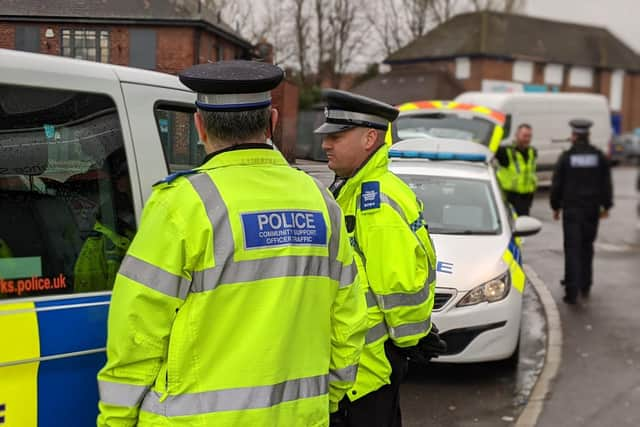Police lockdown enforcement powers - all you need to know
and live on Freeview channel 276
As of 1pm yesterday, people who continue to flout coronavirus lockdown rules will be breaking the law and could be arrested or fined. Officers can use ‘reasonable force, if necessary’.
- What is the law called and where is it in force?


Known as the Health Protection (Coronavirus, Restrictions) (England) Regulations 2020, they are currently in force in England.
- What are the main points of the rules?
Advertisement
Hide AdAdvertisement
Hide AdPolice can order members of the public to go home, leave an area, have the power to disperse a group, using ‘reasonable force, if necessary’ and can make arrests if someone refuses to comply.
Those who ignore the tougher restrictions on movement could be hit with a £60 fine initially - reduced to £30 if paid within 14 days - and another for £120 for a second offence.
Those who do not pay could be taken to court and risk facing costs for unlimited fines.
Refusing to provide a name and address to avoid being given a fine is an arrestable offence.
Advertisement
Hide AdAdvertisement
Hide AdOfficers can also take steps to make sure parents are stopping their children from breaking the rules.
- Why have the rules been enacted?
The government says it is to protect the public and keep people safe.
The regulations state they are made ‘in response to the serious and imminent threat to public health’ posed by Covid-19 and the government considers the ‘restrictions and requirements imposed by these regulations are proportionate to what they seek to achieve’.
But human rights campaigners have raised concerns about the restrictions posed by the powers.
- How long will they be in force?
The regulations are classed as emergency laws.
Advertisement
Hide AdAdvertisement
Hide AdThey must be reviewed at least once every 21 days, starting on April 16.
- Why can I leave my house and how often?
Reasons for why someone may leave their house as well as to get food and medical supplies for you, your household or vulnerable people, are to get money and to exercise.
A reasonable excuse also includes: to give blood, attend a funeral, meet bail conditions, go to court and take part in legal proceedings, to move house and to ‘avoid injury or illness or to escape a risk of harm’.
The rules do not appear to limit how many times per day someone can leave their house.
- What else do the rules say?
Advertisement
Hide AdAdvertisement
Hide AdThe rules define who is considered a vulnerable person under the law as someone who is aged 70 or older, anyone aged under 70 who has an underlying health condition and anyone who is pregnant.
Underlying health conditions include: chronic long-term respiratory diseases like asthma, chronic heart disease, chronic kidney disease, hepatitis, Parkinson's, diabetes, motor neurone disease, multiple sclerosis, a learning disability or cerebral palsy, HIV, Aids, cancer, and obesity.
It also lists in detail the businesses and buildings which can stay open - like supermarkets, hardware stores and post offices - and must close - such as pubs, restaurants and theatres - during the crisis.